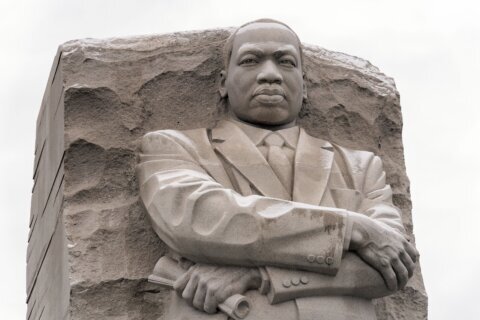Most of us have our minds on Thanksgiving menus and other holiday festivities. But for people grieving the loss of a loved one, the holidays can be very painful.
Dr. Alison Bomba, a clinical psychologist and pediatric grief specialist with a private practice in Frederick, Maryland, has some tips for navigating the holidays while grieving, beginning with acknowledging your loved one’s presence and absence.
“It really is important to do something to acknowledge and remember your loved one,” Dr. Bomba said. “This can be done by holding a moment of silence, saying a prayer, sharing memories, arranging a place setting or lighting a candle.”
Dr. Bomba said children often come up with the best ideas, so it’s a good idea to include them in how we plan for these times.
“Children are often disenfranchised grievers, so we need to include them in our rituals and traditions, acknowledge them as grievers, and help them identify healthy outlets for their grief.”
It’s understandable to not want to disrupt a very young child’s holiday, but Bomba recommends utilizing the resources and supports available to you through extended family, close friends, religious organizations, or school community to accomplish all the work that goes into holiday festivities.
“Accept offers to babysit,” Bomba suggested. “You can ask for help with cleaning the house and preparing meals. Ask someone else to host the holiday party,” and task others with baking, decorating and gift wrapping.
Bomba said it’s also important to acknowledge that things are different now that a loved one has been lost. She suggests getting the family involved by talking about what traditions you would like to hold on to, and what new rituals or traditions you would like to create.
“Sometimes, when there’s been a loss in the family, people choose to go on vacation and get away instead of hosting the traditional holiday celebration. It’s just important to know that those are all OK options,” Bomba said.
People who are grieving during the holidays should prepare for social interactions, Bomba said. She recommends accepting at least one invitation to attend a social gathering, and give yourself permission to decline others.
Bomba also recommends giving oneself permission to decline engaging in triggering conversations by saying, “I’d rather not talk about that right now.”
And finally, Dr. Bomba stresses the importance of self-care.
“I recommend sticking to the basics,” Dr. Bomba said. “When we’re struggling, it’s really important to back to those basic survival skills: drink water, stay hydrated, eat meals regularly, take medications and vitamins as prescribed, leave the house, get fresh air, and prioritize sleep.”
Bomba also recommends giving yourself time to sit with your grief feelings, but also allowing yourself breaks from active grieving.
Not everyone who has experienced a loss needs to seek counseling or therapy. But, if you are struggling, Dr. Bomba said it can be helpful to talk with a therapist who specializes in grief counseling.
“A professional can help you process your loss, work through the pain and grief, and identify ways to maintain a connection with your loved one, while at the same time embarking on a new life.”







